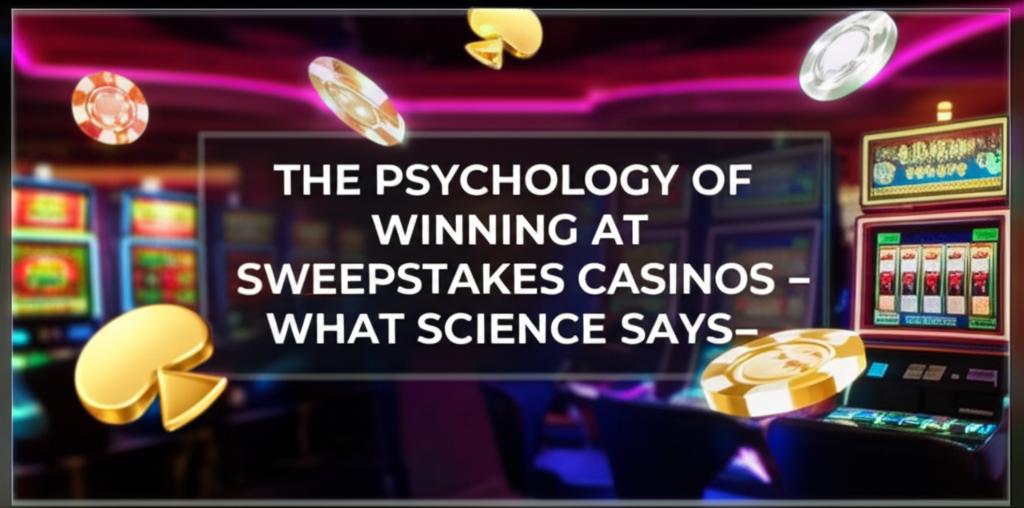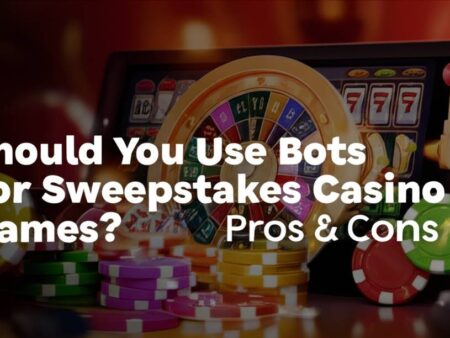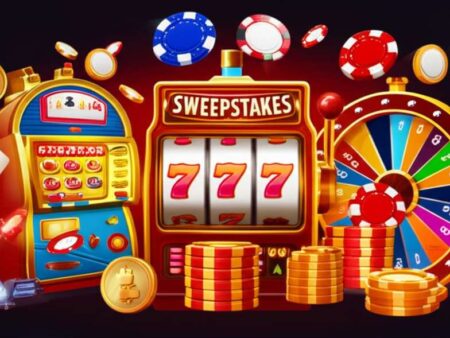Uncover how dopamine surges, intermittent rewards, and the illusion of control drive winning behavior in sweepstakes casino games.
The Psychology of Winning at Sweepstakes Casino Games – Science View

Understanding the Psychological Triggers in Sweepstakes Casinos
Winning at sweepstakes casinos may seem purely random, yet deeper psychological factors like reward anticipation, intermittent reinforcement, and a belief in personal control subtly drive our continuous engagement and play sessions effectively.
The Power of Intermittent Reinforcement
Variable reward patterns create an electric atmosphere in sweepstakes, sparking excitement that motivates persistent play and entices players to embrace unpredictability with every spin while inspiring continual pursuit of potential wins fervently.
Random payouts serve as triggers that elevate emotional highs by catching players off guard, prompting a surge of excitement and re-engagement, as noted in Sweepstakes Casinos: A Beginner’s Guide to Fun Rewards.
The inherent uncertainty in sweepstakes compels players to chase elusive payouts even amid losses, as the perpetual promise of unpredictable rewards drives continued engagement and a desire for more thrilling experiences steadily.
Consistent intermittent wins capture attention by providing unexpected reinforcement that influences decision-making, significantly strengthening the desire to gamble and making each session more enticing and engaging while boosting overall player motivation remarkably.
Dopamine and Anticipation
The brain’s reward pathways ignite during casino play, as dopamine surges not only during wins but also in anticipation of potential success, propelling engagement beyond conventional rationality and triggering continuous player excitement.
Many players experience a surge of excitement as anticipation mimics the thrill of winning, sparking repeated attempts, as explained in Sweepstakes Casino Games: A Beginner’s Guide that continuously fuels their passion eternally.
Dopamine release during gameplay creates a strong pull that makes stopping difficult, as the pleasure of risk and reward drives a relentless urge for additional spins, encouraging players to continue playing persistently.
Robust brain chemistry links enjoyable casino experiences with a cascade of pleasure, encouraging chasing behavior and establishing a cycle where players are drawn back repeatedly, thus perpetuating ever-increasing gaming engagement consistently further.
The Illusion of Control
Many players adopt various strategies and superstitions in hopes of influencing random outcomes, engaging in simple rituals that falsely reinforce a sense of mastery over chance despite the uncontrollable nature of games.
Control bias emerges when players overestimate personal influence, attributing small victories to their skill and mistakenly believing they can steer inherently random game outcomes, thus distorting their judgment with unwarranted confidence severely.
Excessive confidence often proves deceptive since sweepstakes games rely on chance rather than skill, ensuring that insider tips rarely alter fundamentally luck-oriented outcomes, thereby reinforcing the unpredictable nature of every play indeed.
Overestimation of personal influence can lead players to extend their gaming sessions, mistakenly believing that a consistent strategy will ultimately bring success and overcome chance, thereby encouraging further risk-taking behavior almost inevitably.
The Near-Miss Phenomenon
Nearly missing out on a win paradoxically amplifies excitement, as each close call instills a heightened sense of reward and builds a compelling urge to try again, driving continuous determination for success.
Many players misinterpret near-miss outcomes as clear indicators of imminent wins, fueling confidence and driving them to pursue the prospect of a lucrative prize, thus continuing their relentless hunt for success steadily.
The emotional impact of nearly winning tricks the mind into perceiving an imminent jackpot, triggering repeated attempts and deepening the addictive cycle of chance, thereby reinforcing the compulsion to play almost unceasingly.
Near-miss experiences provide a compelling psychological reward, linking the thrill of almost winning with persistent gambling behavior and encouraging continued participation even after losses, thus maintaining hope and driving consistent play steadily.
Social and Gamification Dynamics
Engaging social features like leaderboards and chat forums create a vibrant community within sweepstakes, where competition and peer validation motivate players to remain active and pursue higher ranks with unwavering enthusiastic spirit.
Friendly rivalries and peer recognition build networks of validation, driving players to engage continuously while shared excitement fosters a strong sense of belonging and community, thus ensuring ongoing enthusiasm and connection genuinely.
Incremental achievements and level progress serve as tangible milestones in sweepstakes, instilling a sense of advancement that spurs players to accumulate points and constantly set new goals, thereby igniting relentless competitive spirit.
A strong sense of belonging in gaming communities encourages individuals to return frequently, as regular interactions and shared experiences foster morale and sustain ongoing social participation in sweepstakes with heartfelt continuous connection.
Overcoming Biases for Responsible Play
The sunk cost trap compels players to continue gambling as previous investments of time and credits create barriers to quitting, often resulting in prolonged play despite mounting losses, significantly obstructing risk management.
Loss aversion causes players to feel every defeat more intensely than the joy of winning, intensifying their urge to chase losses and recover failed bets, thereby fostering a never-ending cycle for persistence.
Acknowledging cognitive biases in sweepstakes is crucial for maintaining healthy limits, as self-awareness enables players to interrupt automatic gambling patterns and restore balance in their gaming, thereby promoting sustainable, responsible play overall.
Adopting responsible gaming practices is essential for a balanced sweepstakes experience, empowering players to set limits, know when to walk away, and manage risk effectively, thus ensuring long-term enjoyment and safety consistently.
Did this guide help? Share your experience in the comments!

















